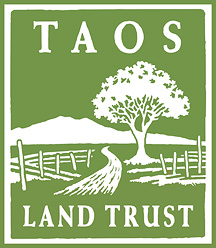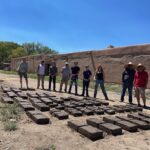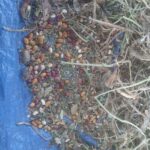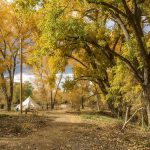Podcasts
New Mexico is in a battle to escape the powerful grip of the oil and gas industry. For nearly a century, the oil and gas industry’s influence on New Mexico has ranged from the education system to elected officials to issues of water and air quality. New Mexico has long been an oil and gas colony – and oil and gas is one of the top polluters in the world.
New Mexico’s oil and gas industry has promised good-paying jobs and economic growth while leaving behind broken and polluted communities and massive environmental damage. New Mexico taxpayers will have to pay the bill for all of this.
How can New Mexico escape the grasp of the oil and gas industry and move forward to an equitable, clean and prosperous energy future?
Jim O’Donnell talks with Megan Milliken Biven, an energy policy expert and the founder of True Transition, an organization devoted to employing oil and gas workers to address the country’s mounting abandoned oil and gas well crisis.
This episode was recorded at the studios of Taos Sound and Media in Taos, New Mexico on March 3, 2021. Produced by Jim O’Donnell. Recorded and edited by Brett Tomadin of Taos Sound and Media (www.taossound.com/)
Links in this episode:
www.truetransition.org/
Please support this podcast with a small donation:
taoslandtrust.org/donate-form
Journalist Julia Daye hosts KNCE’s informational special in response to community concern and recent protests over the Abeyta Water Rights Settlement and the future of the Taos, New Mexico valley watershed. This special was recorded in early June 2021.
Dr. Amy Brady is the Executive Director of Orion magazine and the author of Ice: An American Obsession, a cultural history of ice forthcoming from Putnam in 2023. Her writing about culture, environmentalism, and climate change has appeared in O, the Oprah magazine, Slate, The Los Angeles Times, The New Republic, The Village Voice, the Dallas Morning News, Pacific Standard, McSweeney’s, Literary Hub, and other places. She is also the co-editor of the anthology, House on Fire: Dispatches from a Climate-Changed World, forthcoming 2022 from Catapult.
This episode was recorded at the studios of Taos Sound and Media in Taos, New Mexico on February 9, 2021. Produced by Jim O’Donnell. Recorded and edited by Brett Tomadin of Taos Sound and Media (www.taossound.com/)
Links in this episode:
Burning Worlds: https://chireviewofbooks.com/category/burning-worlds/
The Weight of Light: A Collection of Solar Futures: csi.asu.edu/books/weight/
McSWEENEY’S ISSUE 58: 2040 A.D.: store.mcsweeneys.net/products/mcswe…ion?taxon_id=5
Amy Brady Writes: amybradywrites.com/
Gun Island: www.goodreads.com/book/show/42436500-gun-island
Bangkok Wakes to Rain: www.goodreads.com/en/book/show/403…ok-wakes-to-rain
Watercolors: www.hoppermag.org/watercolors
Hanging, Just Outside the World: www.modernliterature.org/hanging-just…im-odonnell/
Please support this podcast with a small donation:
taoslandtrust.org/donate-form
In season three of the Taos Land Trust podcast, we will explore climate change in New Mexico. What can we expect? What impacts do we see right now? Most importantly, how can we adapt to the changes that are coming, like it or not?
Jim O’Donnell talks with environmental reporter Laura Paskus, the producer of the series “Our Land: New Mexico’s Environmental Past, Present and Future” featured on New Mexico in Focus. Laura’s new book is At the Precipice: New Mexico’s Changing Climate (UNM Press), essential reading for anyone interested in the coming climate catastrophe.
This episode was recorded at the studios of Taos Sound and Media in Taos, New Mexico on February 9, 2021. Produced by Jim O’Donnell. Recorded and edited by Brett Tomadin of Taos Sound and Media (www.taossound.com/)
Links in this episode:
unmpress.com/books/precipice/9780826359117
twitter.com/LauraPaskus
Please support this podcast with a small donation:
taoslandtrust.org/donate-form/
Since early 2019, the Taos Land Trust has been engaged in a long-term iterative process known as the Working Lands Resiliency Initiative. The goal of this work is to reconnect traditional farming families to their lands and their farming heritage. The land trust is asking: How can conservation easements, tax breaks, planning and zoning work together to keep farm lands from development while at the same time giving those lands economic, community and conservation values? How can this help a rural community achieve climate resilience?
In this episode, Jim O’Donnell talks with Chyna Dixon, the Working Lands Resiliency Coordinator and Ben Wright, the Education and Lands Projects Coordinator for the Taos Land Trust.
This episode was recorded at the studios of Taos Sound and Media in Taos, New Mexico on September 29, 2020. Produced by Jim O’Donnell. Recorded and edited by Brett Tomadin of Taos Sound and Media (www.taossound.com/)
Listen to the November 2019 podcast introducing the Working Lands Resiliency Initiative here: Taos-land-trust – Working_lands
Links in this episode:
taoslandtrust.org/working-lands/
taoslandtrust.org/nm-healthy-soils-program/
Please support this podcast with a donation:
taoslandtrust.org/donate-form/
The Taos Land Trust and Vista Grande High School (VGHS) have joined forces to provide fresh weekly produce to Taos families, school food delivery programs, and local food pantries while offering paid technical training to Vista Grande students. The project is funded by Vista Grande High School’s Career Technical Education and Community Schools grants. The program takes place at Taos Land Trust’s Rio Fernando Park, the 20-acre public space created by the Taos Land Trust in the center of Taos.
Jim O’Donnell talks with Corbett Wicks, the Vista Grande High School Sustainable Agriculture & Leadership Teacher and Mentorship Coordinator, and Amanda Flores, the Vista Grande High School Community Schools Coordinator about the program at Rio Fernando Park, the changes to education brought on by the COVID19 pandemic and about the future of education.
This episode was recorded at the Taos Land Trust office in Taos, New Mexico on September 8, 2020. Produced by Jim O’Donnell. Recorded and edited by Brett Tomadin of Taos Sound and Media (www.taossound.com/)
Links in this episode:
www.vistagrande.org/
taoslandtrust.org/2020/07/06/land-…innovative-feed/
Please support this podcast with a small donation:
taoslandtrust.org/donate-form/
We have mismanaged our forests over the last century—and we are now paying the costs. Climate change is making forests drier, beetles and other pests (driven by warming temperatures) are making kindling of vast stretches of woodland, and “booming development…[has] filled forests with human-produced sparks and heat,” and far too many houses.
What is a megafire? How is climate change influencing wildfires throughout the Western United States of America? How are towns and communities pushing development into fire prone areas, thereby creating a deadly situation. Should American taxpayers bear the costs of poorly planned development or utilities that spark fires?
Jim O’Donnell talks with Michael Kodas, Senior Editor at InsideClimate News, author of “Megafire” & “High Crimes” and former deputy director at the Center for Environmental Journalism
This episode was recorded at the studios of Taos Sound and Media in Taos, New Mexico on May 7, 2020. Produced by Jim O’Donnell. Recorded and edited by Brett Tomadin of Taos Sound and Media (www.taossound.com/)
Links in this episode:
www.michaelkodas.com/
twitter.com/MichaelKodas
insideclimatenews.org/news/22082020/…transformation
Please support this podcast with a small donation:
taoslandtrust.org/donate-form/
Host Jim O’Donnell talks with John Fleck, Director of the University of New Mexico Water Resources Program and Eric Kuhn, self-described “Colorado River nerd” about their new book “Science be Dammed: How Ignoring Inconvenient Science Drained the Colorado River” and how the realities of water in the American West run up against the hopes and dreams of developers and land managers. “Science Be Dammed” is an alarming reminder of the high stakes in the management—and perils in the mismanagement—of water in the western United States.
This episode was recorded at the studios of Taos Sound and Media in Taos, New Mexico on May 7, 2020. Produced by Jim O’Donnell. Recorded and edited by Brett Tomadin of Taos Sound and Media (www.taossound.com/)
Links in this episode:
uapress.arizona.edu/book/science-be-dammed
www.inkstain.net/fleck/
twitter.com/R_EricKuhn
twitter.com/jfleck
Please support this podcast with a small donation:
taoslandtrust.org/donate-form/
We are at a critical time for agriculture and the environment. The realities of extreme weather events, conflicts over water, the blight of rural communities, and diminishing natural resources are bearing down on all New Mexicans, with farmers and ranchers at the forefront of these serious problems. At the same time, awareness that soil stewardship can be part of the solution to the climate crisis has been rising and new approaches, mutually beneficial for agriculture and the environment, are gaining traction. Agriculturalists are looking for ways to improve their soil, but they require know-how, sustained technical assistance, help in overcoming institutional barriers, financial incentives, and risk mitigation.
What is solutions-oriented environmental journalism and how do journalists make complex science accessible to the public? Host Jim O’Donnell talks with Todd Reubold publisher and co-founder of Ensia Media (ensia.com/)about journalism, climate change, story-telling and COVID19. This episode was recorded at the studios of Taos Sound and Media in Taos, New Mexico on April 1, 2020. Produced by Jim O’Donnell. Recorded and edited by Brett Tomadin of Taos Sound and Media (www.taossound.com/)
The Taos Land Trust (TLT) and Not Forgotten Outreach (NFO) have permanently protected nearly 24 acres of open space and agricultural land in the center of the Town of Taos. The conservation easement, announced today, will preserve scenic open space and valuable irrigated agricultural land and wildlife habitat while offering recreational and educational benefits of the residents of Taos County in perpetuity. We talk with Not Forgotten Outreach Executive Director Don Peters and Taos Land Trust Executive Director, Kristina Ortez.
Jonathan P. Thompson is the author of RIVER OF LOST SOULS which the gripping story behind the 2015 Gold King Mine disaster that turned the Animas River in southwestern Colorado orange with sludge and toxic metals for over 100 miles downstream, wreaking havoc on cities, farms, and the Navajo Nation along the way. Host Jim O’Donnell talks with Thompson about the tragic legacy of gold mining in the American West and how the oil and gas industry is repeating this same pattern of exploitation and pollution. This episode was recorded at the studios of KNCE 93.5FM in Taos New Mexico on March 5, 2020. Produced by Jim O’Donnell. Edited by Brett Tomadin of Taos Sound and Media (www.taossound.com/)
What are our nation’s bedrock environmental laws? How do the National Environmental Policy Act, the Clean Water Act, the Endangered Species Act and others work and how effective are they? Host Jim O’Donnell speaks with John Horning, Executive Director of Wild Earth Guardians. Recorded at the studios of KNCE 93.5FM True Taos Radio on February 20, 2020. Produced by Jim O’Donnell. Edited by Brett Tomadin of Taos Sound and Media (www.taossound.com/).
What is an urban forest? Forests are dynamic ecosystems providing critical benefits to people and wildlife. Forests within towns and cities are called urban forests. These systems help filter air and water, they control storm water, protect infrastructure, conserve energy, increase economic activity and provide animal habitat and shade. They also add beauty, form, and structure to urban design and they are vital for climate change adaptation. The Taos Tree Board is working to increase and improve the urban forest in this northern New Mexico town. Host Jim O’Donnell speaks with arborist Paul Bryan Jones of the Taos Tree Board about urban forests. Recorded at the studios of KNCE 93.5FM True Taos Radio on February 6, 2020. Produced by Jim O’Donnell. Edited by Brett Tomadin of Taos Sound and Media (www.taossound.com/). PLANT A TREE!
The age of big dams is over. Communities throughout the country are looking for new ways to slow down, clean and store water. How does nature take on these needs? This podcast from the Rio Fernando Collaborative speaker series looks at nature-based ways to hold and clean water and how to take care of our rivers. Jim O’Donnell speaks with Dr. Malia Volke of the Washington Department of Natural Resources (formerly of the New Mexico Department). This episode was recorded at the studios of KNCE 95.3FM True Taos Radio on January 23, 2020. Produced by Jim O’Donnell. Edited by Brett Tomadin of Taos Sound and Media (www.taossound.com).
What is a noxious weed? What is an invasive species? What kind of impacts do they have on the health of our ecosystems? How and when do we best manage them? This podcast from the Rio Fernando Collaborative speaker series looks at noxious and invasive species, what they are and how to deal with them. Jim O’Donnell speaks with Jim Wanstall of the New Mexico Department of Agriculture and Kineo Memmer of the Taos Land Trust. This episode was recorded at the studios of KNCE 95.3FM True Taos Radio on January 9, 2020. Produced by Jim O’Donnell. Edited by Brett Tomadin of Taos Sound and Media (www.taossounds.com).
Taos Land Trust is home base to an innovative and experimental project to reconnect traditional farming families to their lands and their farming heritage. How can conservation easements, tax breaks, planning and zoning work together to keep farm lands from development while at the same time giving those lands economic, community and conservation values? How can this help a rural community achieve climate resilience? Jim O’Donnell talks with Taos Land Trust’s Chyna Dixon about the Working Lands project. This podcast was recorded at the studios of KNCE 93.5FM True Taos Radio in Taos, New Mexico on November 14, 2019. Produced by Jim O’Donnell. Edited by Brett Tomadin of Taos Sound and Music.
A conservation easement is a voluntary legal agreement between a landowner and a land trust or government agency that permanently limits uses of the land in order to protect its conservation values. Landowners retain many of their rights, including the right to own and use the land, sell it and pass it on to their heirs. Helping landowners decide if a conservation easement is right for them and then helping them through that process is the core mission of the Taos Land Trust. What is a conservation easement? is it right for you? Host Jim O’Donnell spoke with TLT Executive director Kristina Ortez and Stewardship Coordinator Maya Anthony on the ins and outs of conservation easements. Recorded at the studios of KNCE 93.5FM True Taos Radio on December 12, 2019. Produced by Jim O’Donnell. Edited by Brett Tomadin of Taos Sound and Media (www.taossound.com).
The Taos Land Trust has been monitoring the bat population at Rio Fernando Park in Taos, New Mexico for over a year. How do we do it? Bat expert Mike Balistreri explains the scientific process of monitoring bats, the status of bat populations in northern New Mexico and dives into the importance of bats for our ecosystems. Recorded at the studios of 93.5FM True Taos Radio on October 3, 2019. Produced by Jim O’Donnell. Edited by Brett Tomadin of Taos Sound and Media.
Engineer Erin English describes green Infrastructure is a practice of hope. What is infrastructure and how can it be changed to improve water management, walkability and generally improve our quality of life? This podcast from the Rio Fernando Collaborative looks at green infrastructure options and financing in the town of Taos, New Mexico. Jim O’Donnell speaks with Chyna Dixon of the Rio Fernando Collaborative and Erin English of BioHabitats. This episode was recorded at the studios of KNCE True Taos Radio on August 22, 2019. Produced by Jim O’Donnell. Edited by Brett Tomadin.
New Mexico has a very rough history. Violence, colonialism, racism and displacement all contribute in no small way to the poverty, low-educational attainment and other problems facing the state. This history often makes it difficult for people to talk to each even over shared goals such as natural resource protection. The Taos Healing and Reconciliation Project is a 4-year pilot project which aims to heal racial divides in Taos, New Mexico building upon the strong cultural heritage by offering traditional Indigenous healing and reconciliation techniques through Community Health Fairs and gatherings. Recorded at the studios of 93.5FM True Taos Radio on September 5, 2019. Produced by Jim O’Donnell. Edited by Brett Tomadin of Taos Sound and Media.
How do sidewalks enhance the safety, equity, economy and beauty of a community? How can sidewalks and increased pedestrian activity benefit small and rural communities? What is good sidewalk design? Jim O’Donnell of the Taos Land Trust talks with Michelle Lieberman and Danielle Sherman of the National Safe Routes Partnership. This episode was recorded at the studios of KNCE True Taos Radio on July 11, 2019. Produced by Jim O’Donnell. Edited by Brett Tomadin.
What is the Taos Mainstreet Accelerator Project? How will it impact the future of Taos? The Taos MainStreet Accelerator project (TMSA) is an independent, nonprofit, local program to facilitate a shared vision for our downtown, encourage economic vitality, and celebrate Taos’ cultural and historic assets. Jim O’Donnell talks with Elizabeth Palacios and Davison Koenig of the Mainstreet Project. This episode was recorded at the studios of KNCE True Taos Radio on May 30, 2019. Produced by Jim O’Donnell. Edited by Brett Tomadin.
How will New Mexico and other western states manage forests in the age of Climate Change? Taos Land Trust’s Jim O’Donnell talks wtih Collin Haffey, the conservation coordinator with The Nature Conservancy in New Mexico. Before joining TNC Haffey worked on climate-related forest disturbance processes, ranging from drought- and fire-induced ecosystem type conversion from forests to shrublands or grasslands at local and regional scales. This episode was recorded at the studios of KNCE True Taos Radio on June 13, 2019. Produced by Jim O’Donnell. Edited by Brett Tomadin.
When did we become so tame? How has “the good life” come to mean addiction to screens and status, fossil fuels and financial fitness? Can we break free to become the joyful and prophetic people God calls us to be? Jim O’Donnell talks with wilderness guide Todd Wynward as he “rewilds” the Jesus Way. This episode was recorded at the studios of KNCE True Taos Radio on May 2, 2019. Produced by Jim O’Donnell. Edited by Brett Tomadin.
Why should New Mexicans care about climate change? What will the impacts be on our daily lives and in our communities? How do scientists know that climate change is happening and how do they know what it will impact? Jim O’Donnell of the Taos Land Trust talks with New Mexico State Climatologist Dave Dubois. This episode was recorded at the studios of KNCE True Taos Radio on April 18, 2019. Produced by Jim O’Donnell. Edited by Brett Tomadin.
Climate change is already impacting New Mexico. How do we deal with this to protect our waters, our communities and our children? How do we think strategically and long-term when it comes to dealing with what is truly an existential threat. What are the issues facing New Mexico and what is being done both at a Federal and State level? Jim O’Donnell talks with Erik Schlenker-Goodrich, the Executive Director of the Western Environmental Law Center. This episode was recorded at the studios of KNCE True Taos Radio on March 7, 2019. Produced by Jim O’Donnell. Edited by Brett Tomadin.
Tourism is one of the largest industries in the world, and perhaps the leading economic engine in your community — an industry with tremendous potential to change the social economic, and natural landscapes of every place it touches. In this “reframed” approach to travel and tourism, Dan Shilling encourages the caretakers of place to craft a restorative tourism ethic. At the basic level ask, “Why do we do tourism?” Are the comings and goings of guests little more than a cheerleading backdrop for a rapacious growth policy that pays slight, if any, attention to its costs and consequences? Or can you imagine tourism as an enabler of healthy place-making, a tool for meaning-making, and a means to provide the sense of purpose and connection more people seek? It’s not just retiring boomers who are searching for their own travel epiphanies, and it’s not only Machu Picchu that can dish it out. Tourism isn’t going away; it’s not if you do it how. get in the game, but establish your own rules. Taos Land Trust’s Jim O’Donnell talks with author Dan Shilling about the poetry and politics of place. Recorded at KNCE 93.5FM studios in January 2019. Produced by Jim O’Donnell. Edited by Brett Tomadin.
Legends don’t come close to capturing the incredible story of the coyote In the face of centuries of campaigns of annihilation employing gases, helicopters, and engineered epidemics, coyotes didn’t just survive, they thrived, expanding across the continent from Alaska to New York. In the war between humans and coyotes, coyotes have won, hands-down. Coyote America is the illuminating five-million-year biography of this extraordinary animal, from its origins to its apotheosis. It is one of the great epics of our time. Taos Land Trust’s Jim O’Donnell talks with author and historian Dan Flores about this incredible animal. Recorded at KNCE 93.5FM studios in January 2019. Produced by Jim O’Donnell. Edited by Brett Tomadin.
Taos Land Trust’s Jim O’Donnell speaks with restoration ecologist Jen Vrooman of Keystone Restoration Ecology about the ongoing watershed restoration efforts along the Rio Fernando in Taos, New Mexico. Recorded October 19, 2018 at KNCE studios in Taos, New Mexico.
Taos Land Trust’s Jim O’Donnell talks with Gillian Joyce of Rio Chiquito consulting about the development of community agricultural plans, public gardens and the creation of Rio Fernando Park. Plus they dive into their shared Irish heritage…. Recorded September 20, 2018 at the KNCE studios in Taos, New Mexico.
Taos Land Trust’s Jim O’Donnell talks with Judy Torres of the Taos Valley Acequia Association (TVAA) about irrigation in northern New Mexico, the Abeyta Settlement, the history of acequias, water in the valley and where we are headed. Recorded on October 4, 2018 at the KNCE studios in Taos, New Mexico.
Recorded August 23, 2018 at the KNCE studios in Taos, New Mexico. Taos Land Trust’s Jim O’Donnell talks with ornithologists Steve Knox and Robert Tempelton about the health of birds and bird populations in northern New Mexico. They discuss the impact of climate change and habitat destruction on bird health and migration. Most importantly, they get philosophical as to why birds are so interesting and important!
Recorded September 6, 2018 at the KNCE studios in Taos, New Mexico. Amy Bell of Groundwork Studio joins Taos Land Trust’s Jim O’Donnell to discuss the how the Land Trust and its partners developed a master plan for the new Rio Fernando Park through a year-long community driven process. The new 20-acre park in the center of Taos will feature a wetland restoration process, dryland agricultural demonstration projects and great bird watching among a host of other activities.
Olivia Romo from the New Mexico Acequia Association talks with Taos Land Trust’s Jim O’Donnell about acequias, water, culture, and farming and how art and activism go hand-in-hand.
Environmental Journalist Ben Goldfarb discusses his new book “Eager: The Surprising, Secret Life of Beavers and Why They Matter”
Invasive Species Management
Host Jim O’Donnell talks to Ben Wright, Education Coordinator at the Taos Land Trust, about so-called “invasive” species, why they are so persistent and how we might eradicate, manage or even welcome them into our landscapes.
What is the Taos Land Trust?
The first episode of the Taos Land Trust Radio Hour hosted by Jim O’Donnell and Kristina Ortez. In this episode Jim and Kristina highlight the work of Taos Land Trust.




Recent Comments